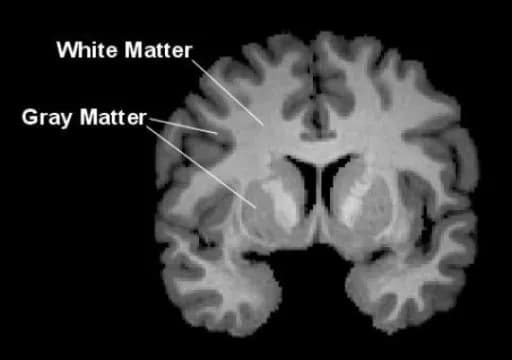All children are screened for a host of conditions at birth, such as Phenylketonuria (PKU), a genetic disorder that is passed by mutated genes from both parents to their offspring. PKU is rare, only affecting one in every 10,000 children in the U.S.; therefore, it is seldom studied. Currently the primary way to manage the disease is through a restricted diet. Now, researchers at the University of Missouri, are using magnetic resonance imaging (MRI) to learn more about the effects of this disorder on the brain and to assist scientists in developing therapeutic drugs that help treat and control the disease.
PKU is a condition in which the body cannot metabolize an amino acid called phenylalanine into tyrosine, a precursor for dopamine and other important neurotransmitters. Without treatment, phenylalanine builds up and can cause severe health problems such muscular control problems, seizures, behavior problems and intellectual disabilities. Once identified, patients with PKU are placed on a restricted diet that limits the amount of phenylalanine they consume lessening the impact of the disorder. Phenylalanine is found in many foods, especially those high in protein, such as eggs, milk, nuts and meats.
"A majority of the studies surrounding early-treated PKU examine the effects seen in the white matter of the brain" said Shawn Christ, associate professor of psychological sciences, in the MU college of Arts and Science and director of the MU Brain Imaging Center. "Yet, only a handful of studies investigating the effects of PKU on gray matter have been conducted. We decided to add to the body of knowledge on this understudied aspect in those affected by PKU."
Gray matter is located on the surface of the cerebral cortex and also includes deep brain structures such as the thalamus and basal ganglia. White matter is located beneath the gray matter of the cerebral cortex and comprises long neural pathways which are responsible for transferring information between gray matter regions where the processing of information occurs.
Past attempts to examine the potential effects of PKU on gray matter have been very few and have been limited by technology at the time. In their most recent study, Christ and colleagues combined the most recent advancements in MRI imaging with the most sensitive detailed analysis techniques including manual hand segmentation of the MRI data. Christ's team spent nearly two years mapping the gray matter of over 40 individuals with and without PKU and found evidence of gray matter abnormalities in individuals with early-treated PKU to be most severe in the posterior regions of the brain.
"To minimize these effects, it is important for someone with PKU to maintain dietary treatment throughout their lifetime, but especially during early childhood to help prevent irreversible brain damage," Christ said. "However, even if you keep phenylalanine low, these individuals are still at risk for difficulties due to the lower-than-normal levels of dopamine associated with the inability to produce tyrosine. We think that our research has the potential to contribute to better understanding the mechanisms underlying the abnormalities in brain and behavior associated with this disorder; thus, it may inform the development of new and exciting treatments for PKU."
Later this month, Christ and other delegates from the National PKU Alliance will be meeting with the leaders from the Eunice Kennedy Shriver National Institute of Child Health and Human Development, a National Institutes of Health organization, to highlight the need for additional funding support for research on PKU and its health impact.
The above post is reprinted from materials provided by University of Missouri-Columbia. The original item was written by Molly Peterson.Note: Materials may be edited for content and length.
Disclaimer: DoveMed is not responsible for the adapted accuracy of news releases posted to DoveMed by contributing universities and institutions.
Primary Resource:
Christ, S. E., Price, M. H., Bodner, K. E., Saville, C., Moffitt, A. J., & Peck, D. (2016). Morphometric analysis of gray matter integrity in individuals with early-treated phenylketonuria. Molecular genetics and metabolism.
Related Articles
Test Your Knowledge
Asked by users
Related Centers
Related Specialties
Related Physicians
Related Procedures
Related Resources
Join DoveHubs
and connect with fellow professionals


0 Comments
Please log in to post a comment.